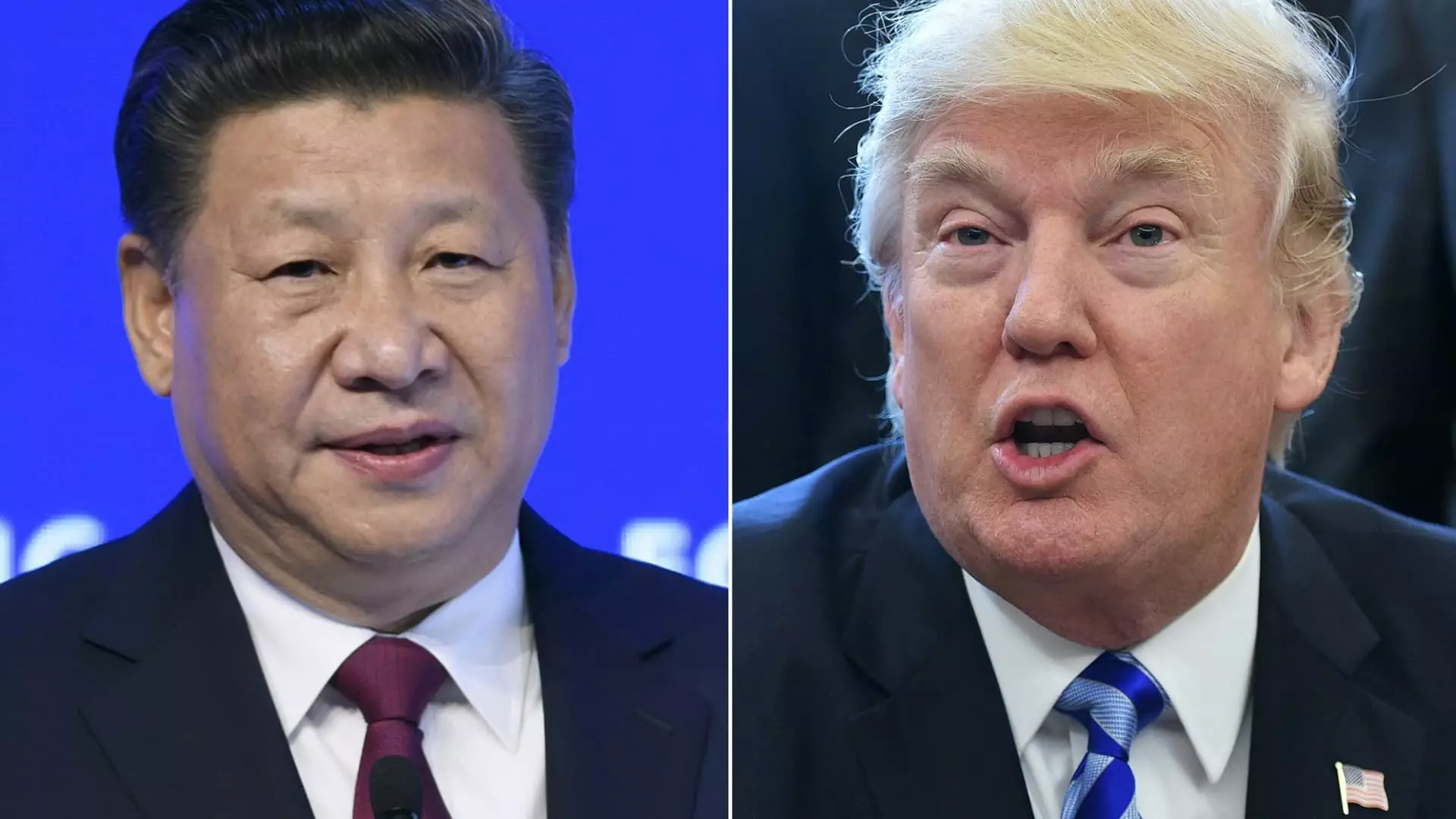In the ever-evolving political landscape of the United States, President Donald Trump’s approach to trade and international relations has raised eyebrows rather than instilling confidence. His recent outburst, where he accused China of violating a supposedly favorable trade agreement, underscores a troubling pattern of rhetoric that often overshadows substantive policy execution. The notion that one could maintain a cordial relationship with a global economic powerhouse like China is naiveté personified, particularly when Trump asserts he was being the “Mr. NICE GUY.” This euphemism belies the brutal nature of trade negotiations that often involve unabashed leveraging of economic power.
In his signature style, Trump took to social media to vent frustrations about a deal that was, in reality, frail from inception. The temporary suspension of retaliatory tariffs was a precarious truce. This volley was reminiscent of a child’s game, where one party deliberately oversteps only to retract when threatened by consequences. The notion that an agreement with China could be honored without constant vigilance and pressure reflects a lack of understanding of the geopolitical intricacies at play. China’s adherence to such a fragile agreement, particularly when it faced immense economic pressures and losses, was questionable from the start.
The Ripple Effect on Markets
Following Trump’s bombastic statement, market futures reflected immediate anxiety, showcasing a direct correlation between his rhetoric and economic sentiment. U.S. Trade Representative Jamieson Greer echoed this alarm, branding the situation as “unacceptable.” Yet, the real question looms: why does the U.S. repeatedly find itself in these precarious positions? The approach taken by the administration has often felt reactionary, as opposed to strategically planned. Ad-hoc decisions and emotional outbursts seldom lead to long-term stability.
In this instance, the stock market’s decline in response signals a broader investor unease, not simply about China, but about the unpredictability that Trump’s trade policy introduces. Business leaders thrive on predictability and stability, qualities sorely lacking in an administration that seems to prioritize bluster over calculated action. The phenomenon where investors gamble on market shifts following Trump’s remarks, coining terms like “TACO trade,” captures the absurdity of a political landscape where trading decisions are predicated on instinctive reactions to impulsive statements.
Tarnished Reputation of International Diplomacy
Trump’s overt attempts at diplomacy often feel more like a performance than a genuine effort to engender lasting relationships. His admission that he “made a FAST DEAL” to rescue China from economic strife illustrates both a paternalistic and disingenuous viewpoint. While the U.S. has historically influenced the global economy, employing such an approach diminishes its standing in international negotiations. Treating trade agreements as tools of ego rather than instruments of economic symbiosis undermines the foundation of diplomacy.
The reality rests in the reciprocal nature of trade. The U.S. has leveraged its vast market as a bargaining chip, but this does not insulate it from the ramifications of erratic policy. Closing factories and generating civil unrest in other nations is a byproduct of economic decisions that must be handled delicately. The naive hope that China would comply with an agreement simply out of gratitude displays a lack of understanding regarding trade dynamics, trust, and mutual interests.
The Political Ramifications of Trade Friction
Amidst this fraught backdrop, the political discourse assumes an additional layer of complexity. Trump’s combative stance transforms our nation’s negotiations into a circus, entertaining rhetoric that captivates the media more than it serves the populace. The optics of being a tough negotiator play well in the court of public opinion, yet the long-term consequences of such strategies breed tensions that are difficult to navigate.
This transition from stalemate to confrontation highlights an unsettling challenge in American politics: the balance between strong leadership and effective diplomacy. If we continue down this path of confrontational trade policy, the gains made in the global marketplace will be unsustainable, and the reputation of U.S. leadership will continue to falter. Interactions with nations must pivot from theatrical displays of strength to engaging in productive, balanced discussions that prioritize mutual benefit over bravado.
As the trade war narrative unfolds, it is essential that we critically examine the motivations and consequences of these actions, rather than merely reacting to the echoes of presidential tweets. The stakes are far too high for Americans to gamble on the unpredictability of an administration that prioritizes its image over strategic international relationships.

